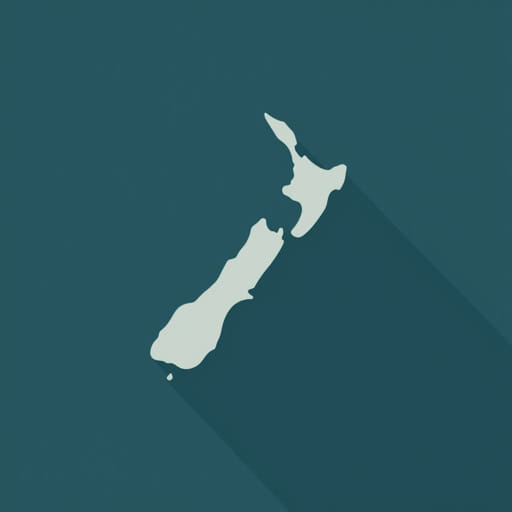New Zealand’s role in the ANZUS alliance has been a topic of interest and debate for decades. Though once a fully active member of the Australia, New Zealand, United States Security Treaty (ANZUS), the nation’s stance on nuclear policy and foreign relations has reshaped its position within the alliance. For many, the question remains: Is New Zealand still in ANZUS? To answer that, we must explore the origins of ANZUS, New Zealand’s policies, its evolving international identity, and how its security relationships have developed over time.
Understanding ANZUS: A Historical Overview
What is ANZUS?
ANZUS, or the Australia, New Zealand, United States Security Treaty, was signed in 1951. It was a mutual defense pact created in the wake of World War II and during the early years of the Cold War. Its primary aim was to protect the Pacific region from external threats, especially the perceived threat of communism spreading throughout Asia and the Pacific.
- Australiasaw it as an essential step to bolster regional security.
- New Zealandwanted assurances of protection in case of military conflict.
- The United Statesaimed to strengthen its influence in the Pacific and reassure its allies.
The treaty promised mutual consultation in the event of threats and allowed for joint military operations and cooperation between the three nations.
New Zealand’s Nuclear-Free Policy and Its Impact
The Policy That Changed Everything
In the 1980s, New Zealand passed legislation declaring itself a nuclear-free zone. This policy prohibited nuclear-powered or nuclear-armed vessels from entering New Zealand’s waters, including those from the United States Navy. Since the U.S. followed a policy of neither confirming nor denying the presence of nuclear weapons aboard its ships, this created a serious rift in the alliance.
U.S. Response and the Breakdown of Military Ties
As a result of New Zealand’s nuclear-free stance, the United States suspended its security obligations to New Zealand under ANZUS in 1986. Military exercises and intelligence-sharing between the two nations were significantly reduced. However, New Zealand maintained its relations with Australia and continued to be involved in joint regional efforts.
Is New Zealand Still in ANZUS?
Technically Still a Party
From a legal standpoint, New Zealand remains a party to the ANZUS treaty. The treaty has not been revoked or officially terminated. However, in practice, the trilateral aspect of the alliance no longer functions as it once did. ANZUS today is more accurately described as a bilateral alliance between the United States and Australia, with New Zealand’s role being far less defined.
Functionally Excluded
While New Zealand is not expelled from the treaty, its exclusion from joint military operations and strategic consultations with the United States means it is effectively outside the active framework of ANZUS. Nonetheless, in the years since the breakdown, relations have improved significantly, particularly in non-nuclear areas of cooperation.
Modern Defense Relations and Cooperation
Renewed Engagement Since the 2000s
Since the early 2000s, New Zealand and the United States have gradually rebuilt their defense and diplomatic relations. This culminated in the signing of the Wellington Declaration in 2010 and the Washington Declaration in 2012, both of which laid the foundation for renewed cooperation in areas like disaster relief, counterterrorism, and peacekeeping.
Working Alongside Australia
New Zealand continues to maintain close military and political ties with Australia. Both countries engage in joint exercises and coordinate on regional security, including peacekeeping missions in the Pacific. Despite differences in policy with the U.S., New Zealand remains a reliable defense partner to Australia.
New Zealand’s Broader Strategic Outlook
Independent Foreign Policy
New Zealand’s independent foreign policy is a point of national pride. Its stance on nuclear weapons and emphasis on diplomacy and multilateralism set it apart from many traditional military alliances. This has allowed New Zealand to play a unique role in global forums like the United Nations and in peacekeeping efforts worldwide.
Participation in Other Alliances and Forums
Despite its limited role in ANZUS, New Zealand is active in several other international and regional security arrangements:
- Five Eyes intelligence alliance (with the U.S., UK, Canada, and Australia)
- APEC (Asia-Pacific Economic Cooperation)
- ASEAN Regional Forum
- United Nations peacekeeping missions
These platforms allow New Zealand to influence and contribute to global and regional security without compromising its values.
Public Perception and Political Debate
Domestic Views on ANZUS
Within New Zealand, there remains considerable support for the country’s nuclear-free policy, and this often overshadows discussions about returning to full ANZUS engagement. While some political parties and figures have expressed interest in strengthening ties with the U.S., there is no widespread appetite for abandoning the nuclear-free stance.
Strategic Balance
New Zealand has managed to strike a balance between asserting its independence and maintaining strong relations with traditional allies. Its cooperation with NATO in certain missions and alignment with Western democracies on global issues shows that the country is not isolated, even without full participation in ANZUS.
Is New Zealand in ANZUS?
New Zealand is technically still a signatory of the ANZUS treaty, but its role has been largely dormant since the mid-1980s due to its anti-nuclear stance. While the military and strategic relationship with the United States was significantly reduced, it has evolved in recent years through other bilateral agreements. New Zealand’s continued collaboration with Australia and involvement in international security arrangements demonstrate that it remains an important regional player.
The question Is New Zealand still in ANZUS? depends on how one defines membership. Legally, yes. Functionally and strategically, it’s complicated. What’s clear is that New Zealand has carved out its own path balancing independence with cooperation, principles with pragmatism, and sovereignty with global responsibility.
